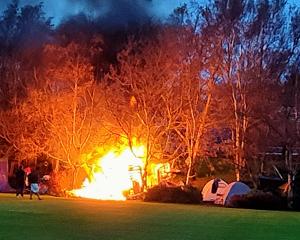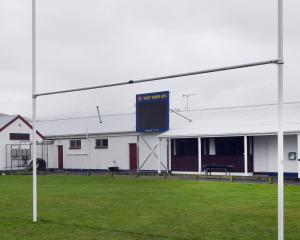University of Otago staff will learn next week how the institution's historic buildings, including the landmark clock tower and registry buildings, are likely to fare in the event of a major earthquake.
A private forum - off-limits to students, the general public and media - will be held in the College of Education auditorium at noon on Tuesday to update staff on the earthquake evaluation assessments of the university's buildings.
Hosted by Otago vice-chancellor Prof Harlene Hayne, the forum will include an explanation of several engineering reports commissioned to assess a "first group" of buildings.
University staff have been advised in a newsletter the forum is to provide information "about the programme to assess which buildings on campus are likely to be classified as earthquake prone and what the plans are for upgrading those that will require strengthening".
University of Otago property services director Barry MacKay released information to the Otago Daily Times last December on how 80 campus buildings in Dunedin had undergone "initial evaluation procedures" in accordance with the New Zealand Society for Earthquake Engineering guidelines.
"Of all the buildings the university owns on its Dunedin campus, only those constructed prior to 1976 were considered `at risk' under current NZSEE guidelines," he said.
The university spent $61,392 to conduct its earthquake evaluation, which included the institution's 13 New Zealand Historic Places Trust category 1 heritage buildings and six category 2 buildings.
Eight buildings were deemed to require secondary assessments after their initial earthquake evaluation, six of which are category 1 buildings, including the clock tower and registry building, the university staff club and two School of Medicine buildings.
An Official Information Act request by the ODT for the initial earthquake evaluation reports commissioned on six historic Dunedin campus buildings was refused by the university because of commercial sensitivity.
Earthquake-strengthening work has since been conducted by the university on the residential hall of Cumberland College, before the start of the 2012 academic year.
"Seismic issues" with the university's quake-damaged buildings at its Christchurch campus were being addressed.
The main School of Medicine building there was due for occupancy in the second half of this year, Mr Mackay said.
The forum is expected to last an hour and is scheduled to open with a short talk by Prof Richard Norris, of the geology department, about earthquake hazard in Dunedin and the likelihood of such an event.
Earthquake evaluations
- University of Otago Buildings which required secondary assessment.
- Registry and clock tower building, 364 Leith Walk.
- Geology building (registry complex), 360 Leith Walk.
- Staff Club building, 80 Union Pl West.
- Lindo Ferguson Building (School of Medicine), 270 Great King St.
- Scott Building (School of Medicine), 260 Great King St.
- Cumberland College, 250 Castle St.
- Arts Building, 95 Albany St.
- St David 2 Building, 75 St David St.












